Sarmesh Kumar is the first in his family, that comes from the community of rat eaters, to go to college.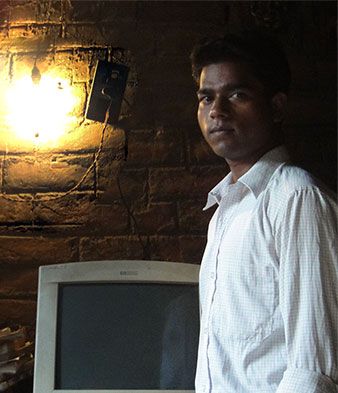
That is why when he passes his degree in business economics, it will not just be an academic formality but an accomplishment that should make every Indian proud.
Archana Masih/Rediff.com met Sarmesh and traveled to his village of Jamsaut near Danapur -- which Bill Gates visited a few years ago -- as Rediff.com looks at Bihar through the stories of its people.
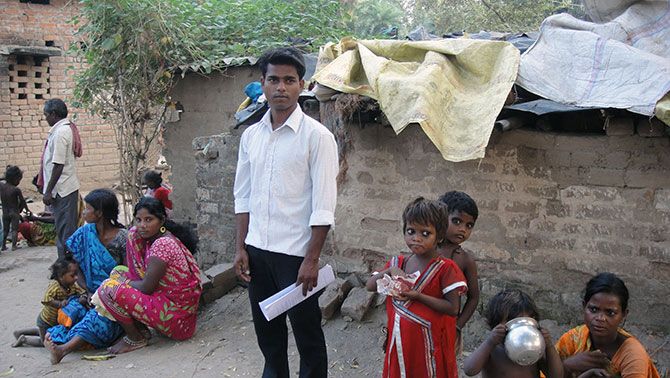
Every morning I cycle for an hour to reach college. I leave at 6.30 am and return by 3 pm. One hour going; one hour coming. There are only 6, 7 students from my caste in my college. It is full of high caste students who mostly come in motorbikes.
Once, some year ago, I accidentally touched a boy while talking to him. He instantly withdrew and moved away -- startled -- as if he had been soiled by my touch! He said, 'Why did you touch me, you're a musahar (a community that eats rats).'
We are considered to be among the lowest among the 'untouchables.' Our villages are called musahar tolis where only people from our caste live. No one else lives there.
I have killed rats and eaten them when I was young, not any more. Young boys in my village still do that sometimes. When I tell them not to do so, they say just because he has had an education and is doing a BBE (Sarmesh is pursuing a degree in Bachelor of Business Economics at Patna's St Xavier's College), he is trying to preach to us.
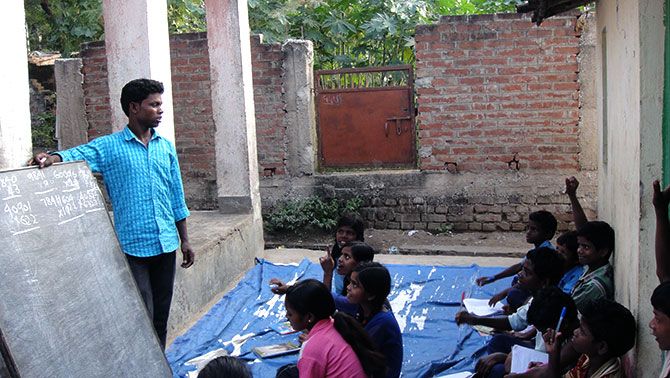
Eight years ago, something happened that changed my life. Mr J K Sinha (a retired Indian Police Service officer who runs the NGO Soshit Samadhan Kendra for the musahar community) came to my village.
He told people that they should send their children to the residential school they had started for our community. But many parents were reluctant, they thought their children's kidneys would be removed and sold.
But my parents sent me. Few other boys from my village also came. I had studied in my village school, but in the new school, I found it difficult to understand. I failed in Maths in the first term but slowly I picked up.
There was this nice teacher Gita ma'am who used to come in the evenings and teach us spoken English. It is because of her that I can speak English today. She was like a mother to us.
I am hurt when people discriminate against us. The other day one young girl at the college gate asked me 'Aapka jaat kya hai (what is your caste).' I tell anyone who asks me that that I am a musahar. There are many who do not believe in chua-chhat (discrimination). Many of my classmates even eat my jhoota (from my plate), it doesn't make any difference to them, but to some, it does.
Some high caste people speak lowly of us. They abuse Jitan Ram Manjhi, (the former Bihar chief minister who is also a musahar). I find that upsetting, but I don't say anything.
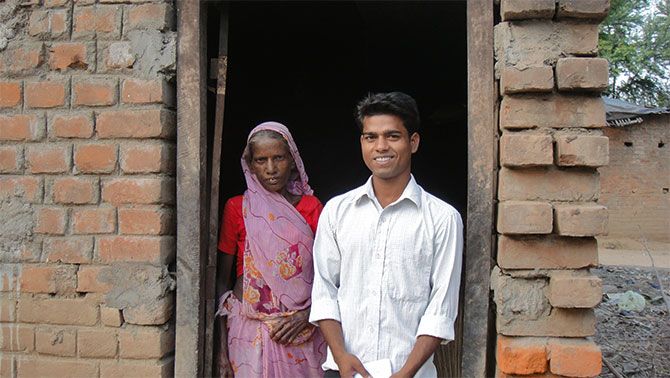
I want to study hard and do well in life. No one has studied this far in my family. My father was a daily wage earner. Two of my brothers also do the same. Only one of my older brothers studied till Class 12. He has been the biggest influence in my family.
He encouraged me to study. He himself teaches in a private school. He also does coaching for the village children outside the village school in the evenings. An NGO has asked him to do this and he gets around Rs 2,500 for it.
My friend Deepak, who is also from the same village and studies in my college, he too teaches children in the evenings as part of the NGO.
***
As Sarmesh takes me around his village that has 104 homes, I see two groups of children sitting on the ground opposite the school. Deepak is teaching them Maths on a blackboard; Phaguni (Sarmesh's older brother) is teaching Maths and Science to an older group of children. He sits in the middle, the children which includes only one girl, surround him. Deepak's group of younger children have several girls.
Hens and some stray dogs wander about them. Sarmesh does not live here, he lives in the residential school, the Soshit Seva Kendra, about two kilometres away. On the days he returns early from college, he drops by to meet his family.
His family lives in a one room hut. A clothesline holds their clothes, it functions like a cupboard. A shelf contains books. The sole light bulb burns and under it I see something that makes my heart leap -- a computer. It belongs to Sarmesh's brother.
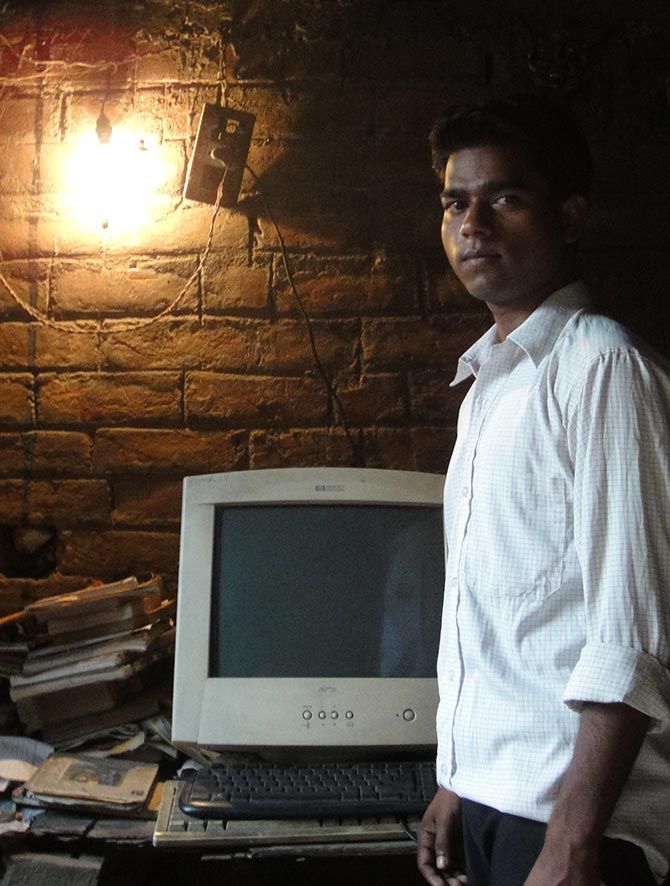
Four years ago, Bill and Melinda Gates visited the village with Bihar Chief Minister Nitish Kumar. "They are celebrity musahars. Their village is supposed to be a model village," says the principal of a school nearby.
But the village seems far from it. Poverty cries out from every hut, every mud path. Sarmesh points out to the new tap connections that have been installed in the village around a month ago. The taps are placed in between small clusters of huts. I open one, but there is no water. The panchayat vice-president, who mans the water tank run by solar energy, says he turns the water supply between 9 am and 5 pm.
The village school is up to Class 5. The school has two classrooms for all its students.
A toilet and bathroom constructed by the government for the villagers is ready, but it is locked. It has not been opened for use in spite of being constructed almost six months ago. The up mukhiya (panchayat vice-president) says it does not have a water connection yet.
Some 10 odd homes have constructed toilets at a cost of around Rs 11,000 each. As part of its scheme, the government reimburses the cost. But Sarmesh's family does not have a toilet. They defecate out in the open. He tells me why.
***
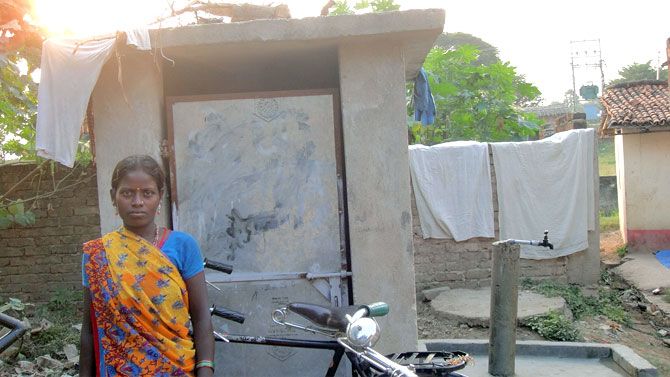
We don't have that much money to build a toilet. Even if the government reimburses us later, where do we bring Rs 11,000, Rs 12,000?
Still, I feel there are a lot of facilities in our village. We have electricity, new piped water connection, a good road that leads to the village. Girls also go to school but they don't go beyond Class 10, 12. No girl has gone to college so far.
There were 5 of us from the village who were educated by the Soshit Sanasthan. One even appeared in KBC with Amitabh Bachchan. He was brilliant, but unfortunately he did not continue with his studies. He got married.
I want to make something of my life. I want to appear for the UPSC (Union Public Service Commission civil service exams) or join the corporate sector or do higher studies in economics.
I go to one of the best colleges (St Xavier's College). My fee is paid by the Sansathan and I stay here free of cost. Mr Sinha gives me some spending money that I use for snacks. My favourite is samosa from the college canteen.
I return from college, have lunch, rest and then study. I study after dinner too. My semester exams will end next week and then there will be holidays for Dussehra.
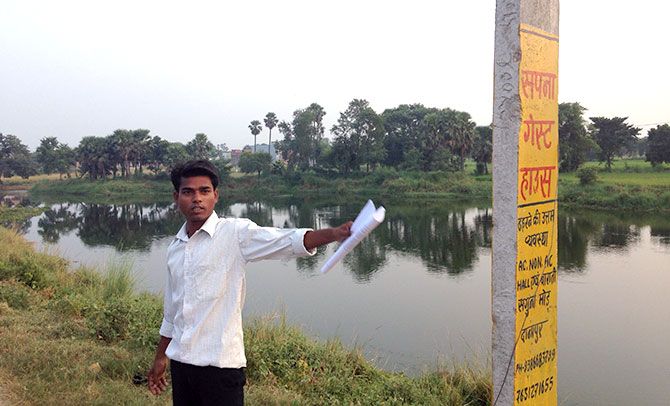
My brother has given me a cell phone. I don't use it for making calls, but to see the Internet for doing research for my studies.
I have learnt so much in all these years. I can speak English. I have the opportunity of a good education. I no longer feel inferior than the upper castes. The greatest thing that education has given me is confidence and the feeling that I can survive anywhere -- in this unequal world.
Sarmesh Kumar has just turned 18. He does not have a voter's card yet, but says if he could vote he would push the button for Nitish Kumar. He feels the chief minister has brought improvement, especially in Bihar of government schools, which are better than before. When I ask him what is it that his family needs most. He says, "A toilet."
The residential school, the Shoshit Sevan Kendra, he lives in provides free boarding and education to 377 boys from the musahar community drawn from the 38 districts of Bihar.










